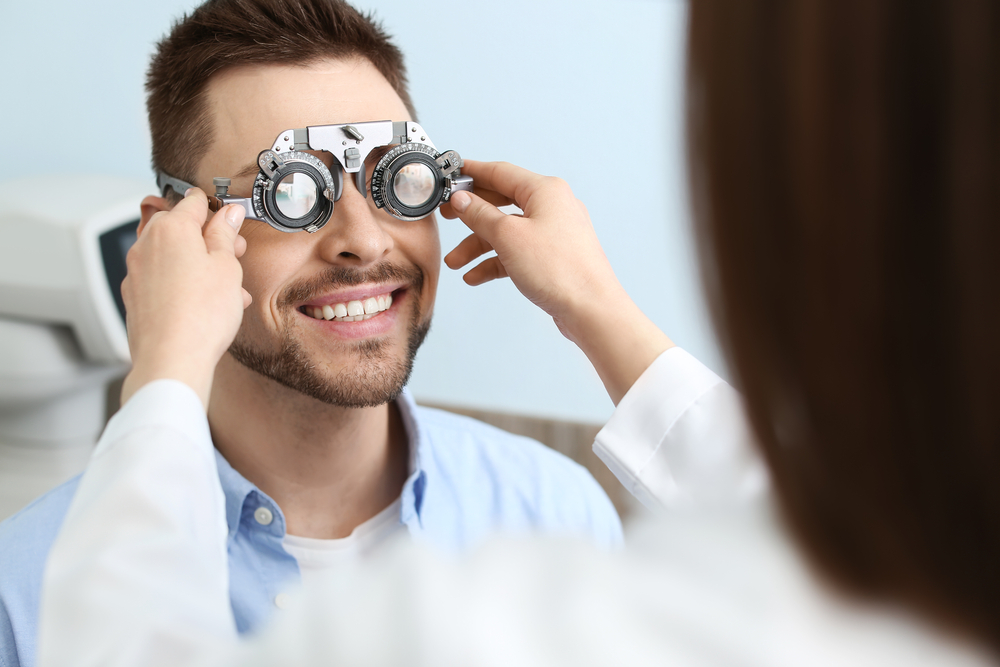
Myopia is a prevalent eye condition that affects millions of people worldwide. It's characterized by a difficulty in seeing objects at a distance while close-up vision remains clear. Essentially, myopia occurs when the eyeball grows too long, or the cornea and lens are too curved for the length of the eyeball, causing light to focus in front of the retina instead of directly on its surface.
Understanding Myopia
Myopia typically begins in childhood and can progressively worsen as a child grows, often stabilizing in early adulthood. The primary symptoms include blurry distance vision, squinting, eye strain, and headaches. While myopia can be corrected temporarily with glasses, contact lenses, or eye surgery, these solutions do not address the root cause of the problem.
The Importance of Slowing Myopia Progression
While myopia itself is typically not a severe condition, high myopia can lead to debilitating eye diseases later in life. Furthermore, the rate of myopia progression in childhood is a predictor of high myopia in adulthood.
If myopia progression can be slowed during childhood, the likelihood of the individual reaching high levels of myopia can be reduced. This could potentially prevent the onset of associated eye diseases such as glaucoma, retinal detachment, and myopic macular degeneration, all of which can lead to vision loss.
In addition, slowing myopia progression can also improve a person's quality of life. It can reduce dependency on glasses or contact lenses and lower the risks associated with refractive surgery. Overall, it represents a proactive approach to eye health, emphasizing prevention over treatment.
Methods of Myopia Management
Myopia management methods have evolved over the years, moving from merely correcting existing refractive errors to slowing the progression of myopia. These methods are typically most effective when started early and can involve specialized lenses, pharmaceutical treatments, and lifestyle modifications.
Ortho-K for Myopia Control
Ortho-k or orthokeratology is a non-surgical procedure that involves the use of specially designed gas permeable contact lenses to reshape the cornea temporarily. The lenses are worn overnight and removed in the morning, providing clear vision without the need for glasses or contact lenses during the day.
Studies have shown that ortho-k can effectively slow down myopia progression in children. It is believed that by reshaping the cornea, ortho-k changes the way light is focused on the retina, which influences eye growth and slows down the progression of myopia.
Role of Atropine Eye Drops in Managing Myopia
Atropine eye drops have been used in myopia management for several years. Atropine is a drug that temporarily paralyzes the eye's focusing mechanism, reducing the stimulus for eye growth and thereby slowing the progression of myopia.
Research indicates that low-concentration atropine eye drops can effectively slow myopia progression with minimal side effects. The most common side effects, such as light sensitivity and difficulty with near vision, are generally manageable and less prevalent with lower concentrations of atropine.
Multifocal Glasses or Contact Lenses as an Effective Solution for Myopia
Multifocal glasses or contact lenses, designed with different lens powers, are another method used in myopia management. They provide clear vision at all distances, reducing the eye's need to strain when focusing on near objects.
Like ortho-k, multifocal lenses change the way light is focused on the retina, which is believed to slow down myopia progression. Studies have shown that wearing multifocal lenses can slow myopia progression in children significantly.
Lifestyle Changes to Slow Down Myopia Progression
Beyond clinical interventions, certain lifestyle changes can help slow down myopia progression. Increasing time spent outdoors has been shown to have a protective effect against the onset and progression of myopia in children. It's believed that exposure to natural light and the visual experience of looking far into the distance can help regulate eye growth.
Reducing near work, such as reading and screen time, can also help. Regular breaks during near work, following the 20-20-20 rule (every 20 minutes, take a 20-second break and look at something 20 feet away), can alleviate eye strain and potentially slow down myopia progression.
A balanced diet rich in vitamins and minerals can also support overall eye health. While there's no specific 'anti-myopia' diet, nutrients such as vitamin A, C, D, and E, omega-3 fatty acids, lutein, and zeaxanthin are known to support eye health.
Manage Your Myopia Today
The global prevalence of myopia is expected to rise in the coming years, making effective myopia management more critical than ever. The methods currently available, including ortho-k, atropine eye drops, multifocal glasses or contact lenses, and lifestyle changes, have all been shown to have some degree of success in slowing myopia progression.
To learn more on myopia and effective management methods, visit Kibo Eyecare at our office in Glastonbury, Connecticut. We provide quality eye care services and products for the entire family. Please call (860) 659-5900 to schedule an appointment today.







